NSYSU hosts Mr. Lee Teng-hui Memorial Symposium in tribute to former President’s legacy
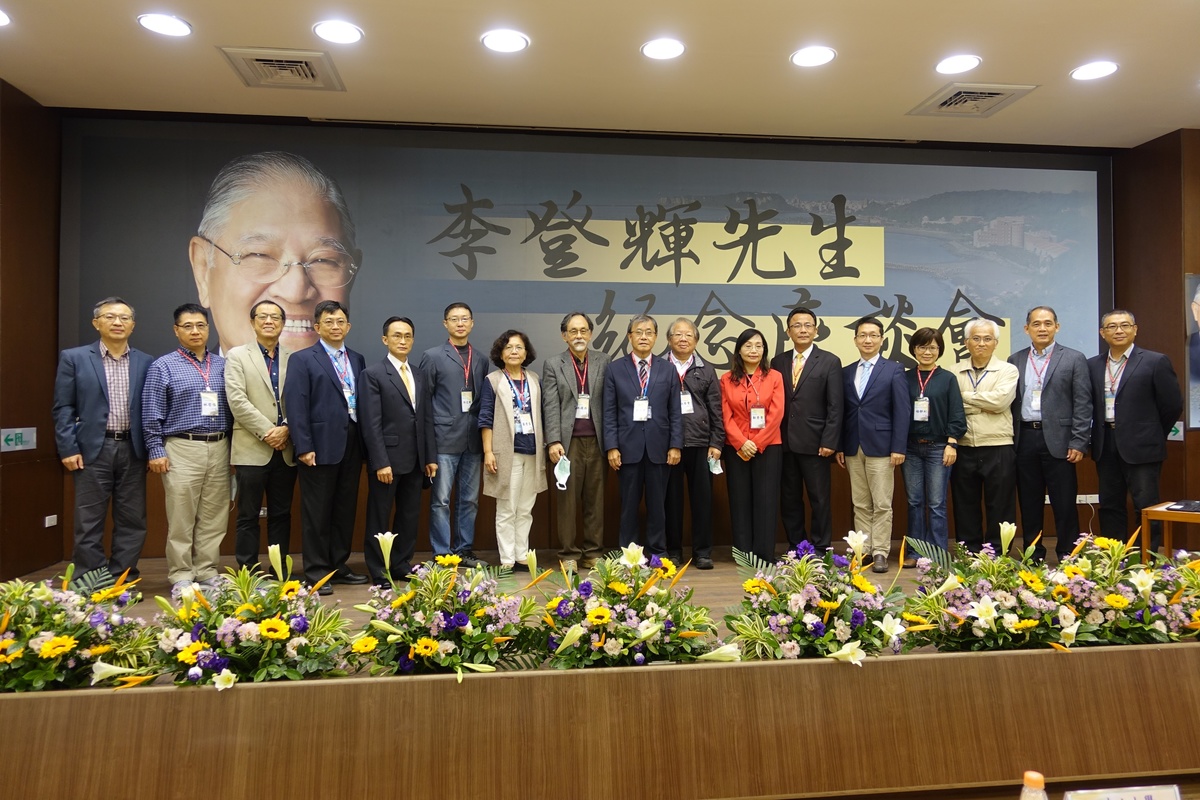
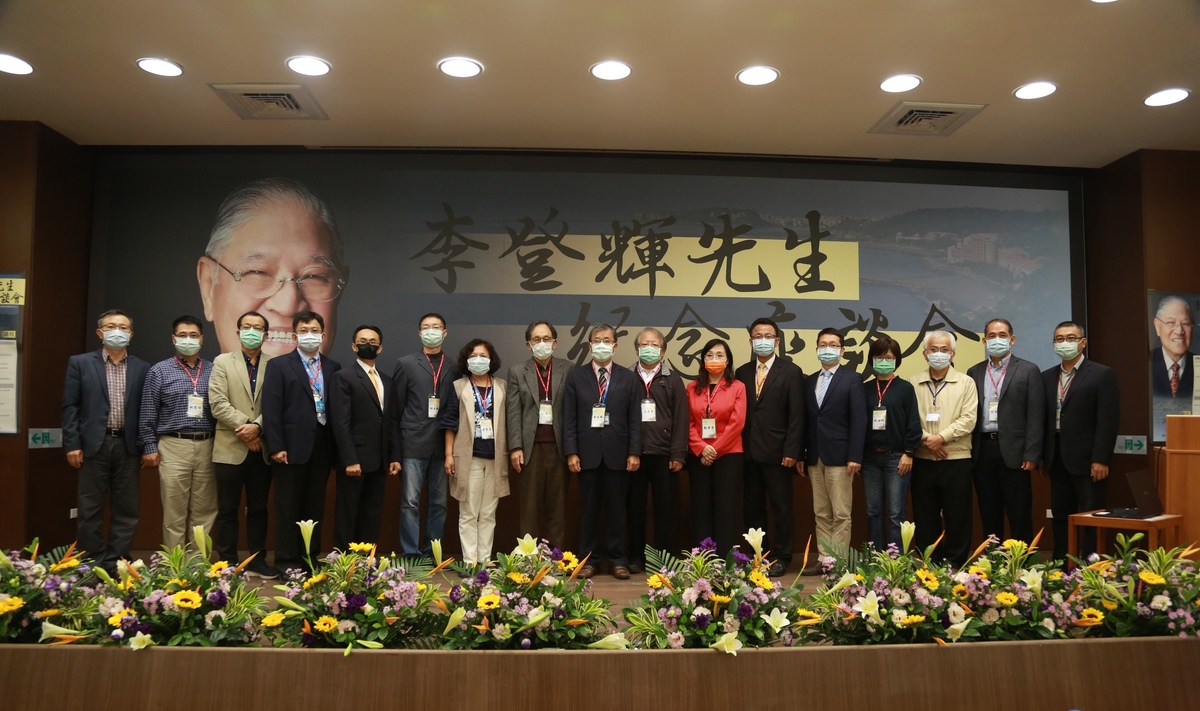
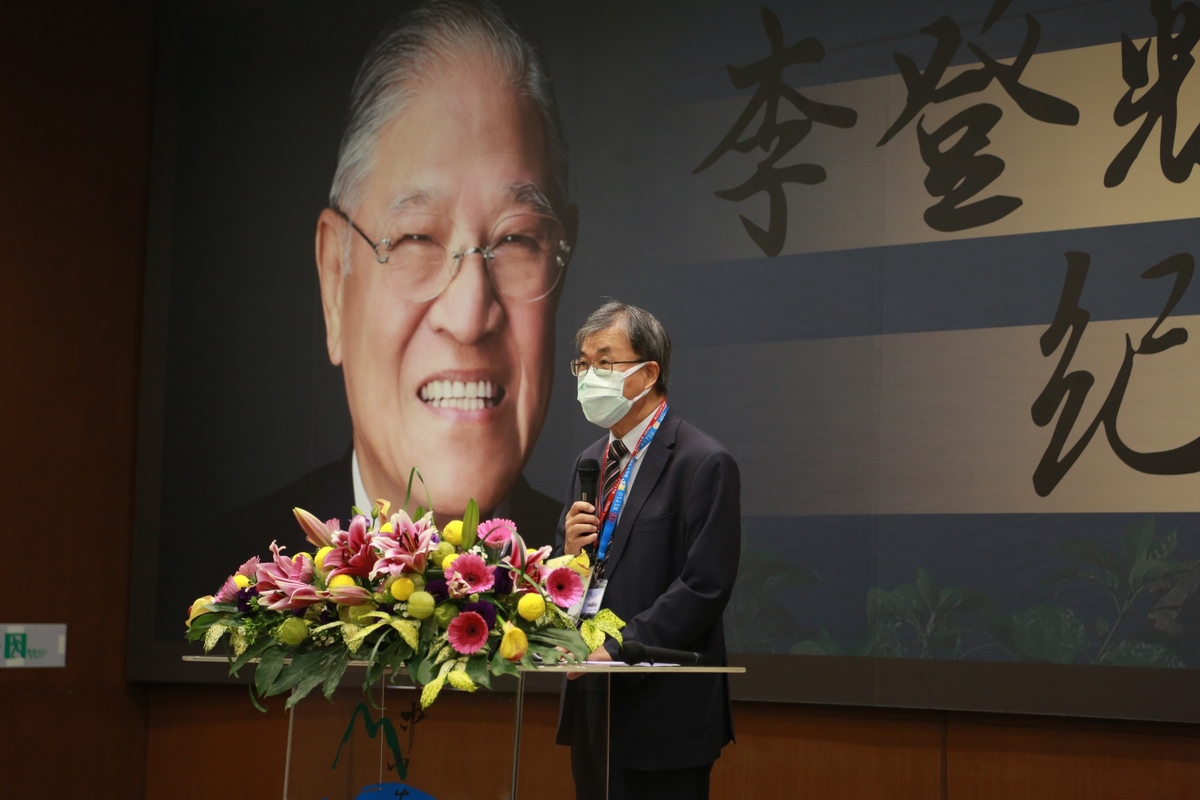
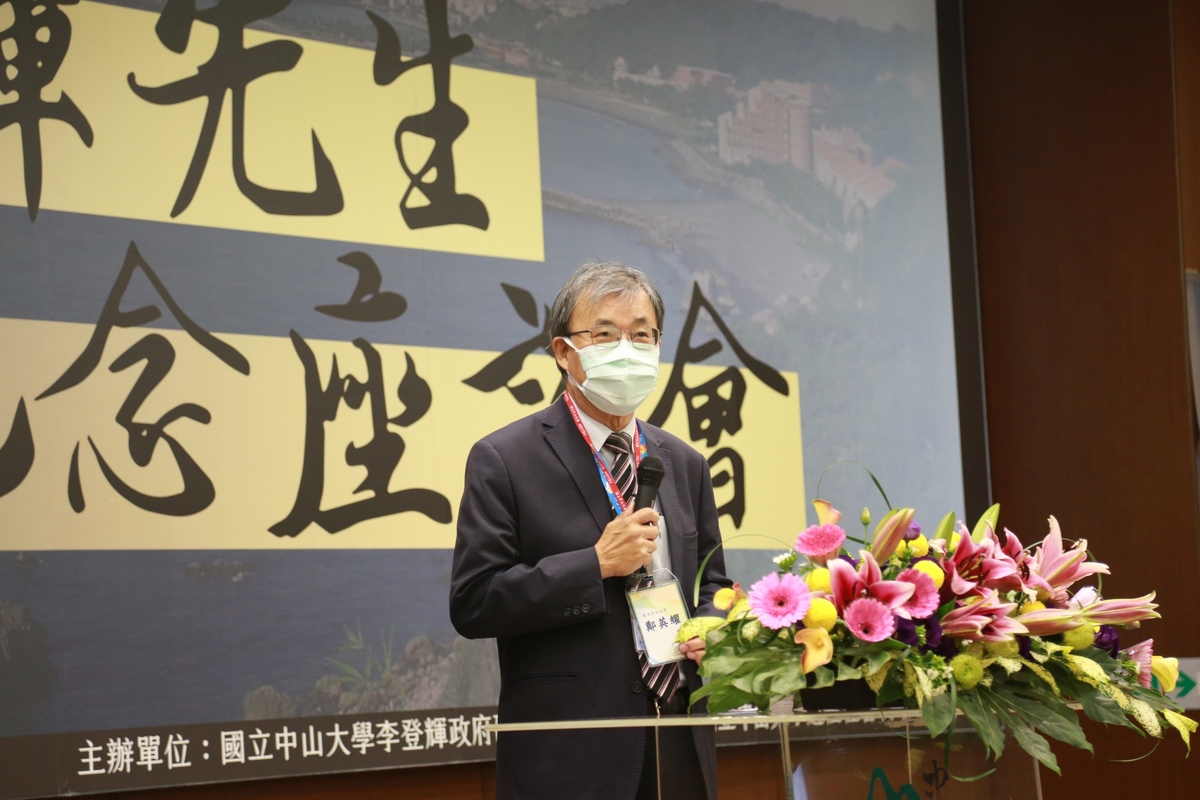
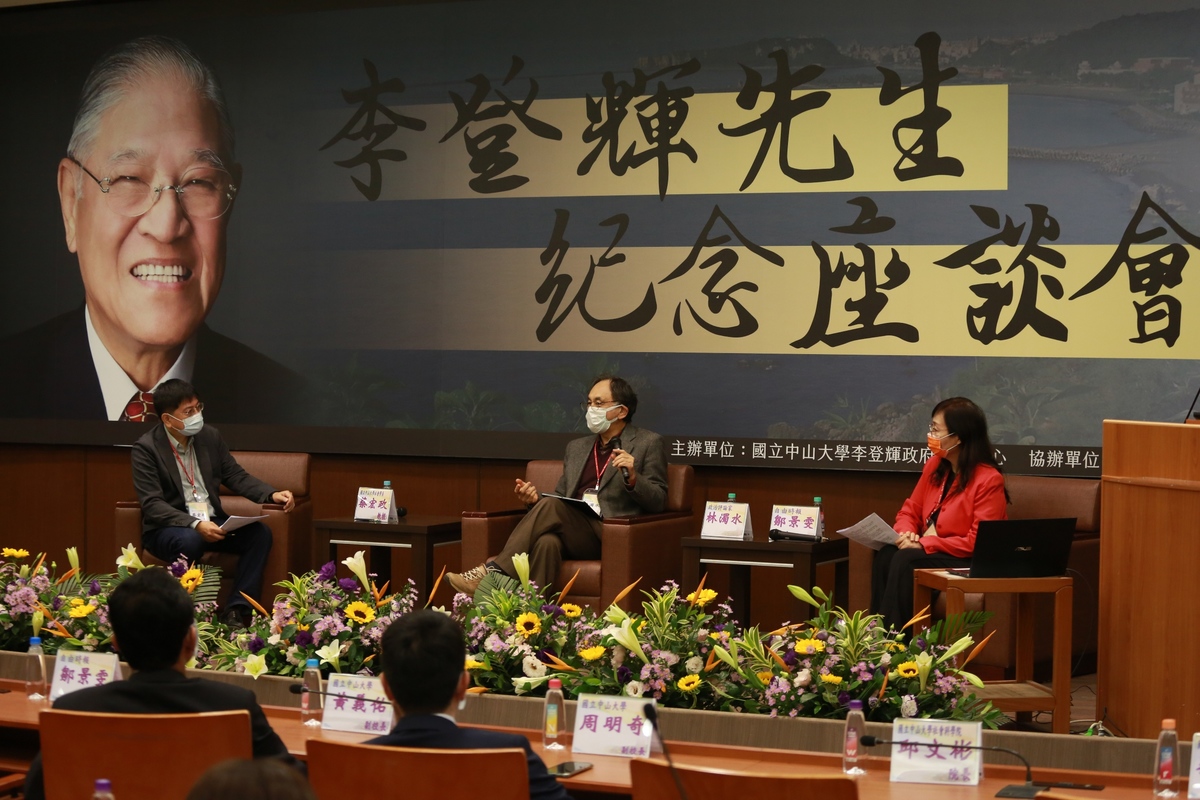
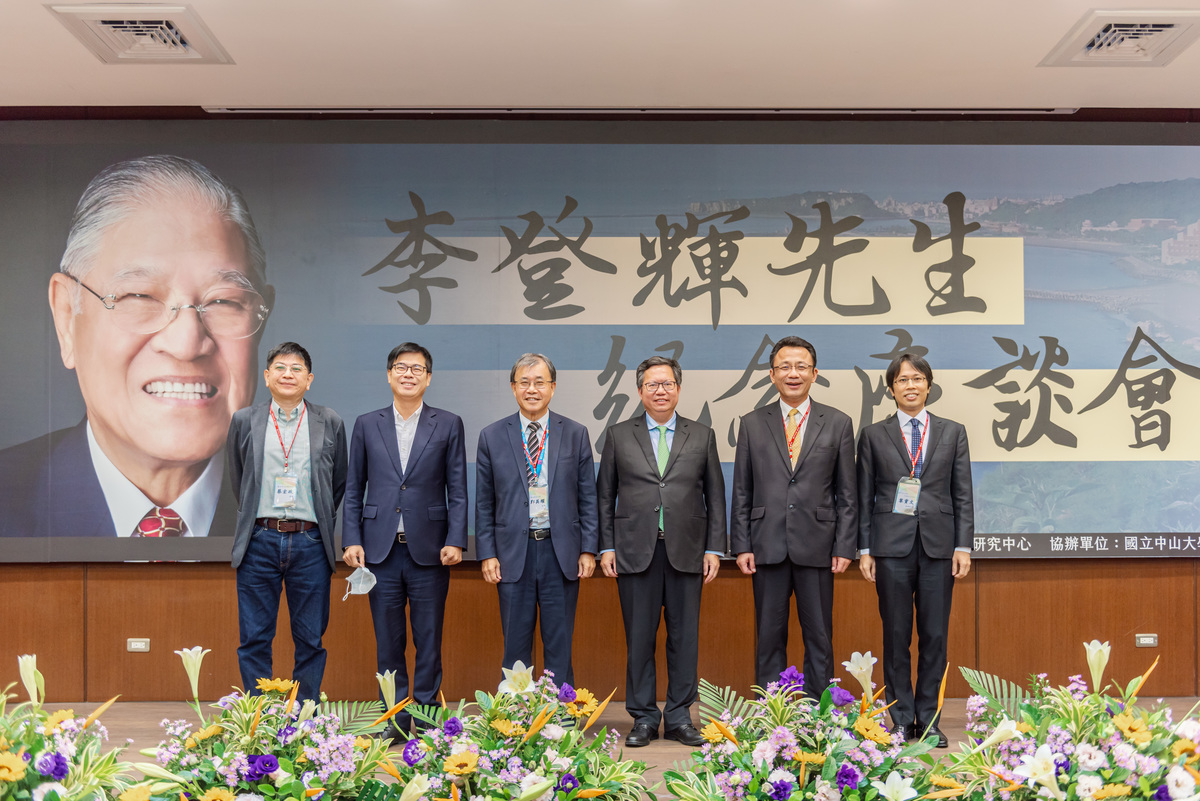
2021-01-07
NSYSU Lee Teng-hui Center for Governmental Studies organized the Lee Teng-hui Memorial Symposium, inviting top scholars and prominent figures of the society and political circles to share their views on the contribution to the democratization of Taiwan by Mr. Lee Teng-hui, the former President of the Republic of China, who ruled the country between 1988 and 2000 and passed away earlier this year (2020). NSYSU President Ying-Yao Cheng said that foreign media nicknamed the former President “Mr. Democracy” in acknowledgment for his pursuance of the principles of democracy and human dignity and the influence he had on Taiwan; however, the legacy of Lee’s political thought should be studied more comprehensively and from a broader perspective. The Symposium not only firmly positioned the role of Mr. Lee in the history of Taiwanese democracy but also provided an opportunity to reflect on the current problems in the Taiwanese democratic system and discuss the possibilities of future reformation.
Scholars and community figures, including the former member of the Legislative Yuan Lin Cho-Shui, chief editor of Liberty Times Ching-Wen Tsou, Chairperson of the Memorial Foundation of 228 Hsueh Hua-yuen, and committee member of the Taiwan Association for Strategic Simulation Jung-Feng Chang, were all invited to the morning session of the Lee Teng-hui Memorial Symposium to discuss Mr. Lee’s contribution to the development of democracy in Taiwan. For the afternoon session, besides Mayor of Kaohsiung City Chen Chi-Mai and Mayor of Taoyuan City Wen-Tsan Cheng, political figures and scholars who worked with former President Lee, such as former Minister of Mainland Affairs Council Huang Kun-Huei and Chairman of Taiwan-Asia Exchange Foundation Hsin-Huang Michael Hsiao, also discussed important national policies in Lee’s times: cross-strait relations and the Southern Policy. The speakers presented Lee’s governance concepts and the directions of national policies and shared their personal memories of the former President.
President Ying-Yao Cheng, in his speech, said that Lee Teng-hui was the first democratically elected president of Taiwan, dedicated to the democratization of Taiwan for 12 years, who turned the country into a paradigm of the third wave of democracy with the current two-party system. Lee Teng-hui also put forward the “two-states doctrine” in cross-strait relations, which constituted the groundwork for the discourse on the statehood of Taiwan. Cheng said that there is no need to further emphasize Lee’s contribution to Taiwan’s democratization and normalization, especially after the screening of “Island Nation”, a Taiwanese political drama, which gave young viewers a thorough understanding of the democratization process in Taiwan in the 90s. However, he said, we still need to study Mr. Lee’s political heritage and his interest in the second wave of democratization more comprehensively from the academic perspective.
Lee Teng-hui Center for Governmental Studies at NSYSU is the first such center for governmental studies dedicated to a Taiwanese political leader among public universities in Taiwan. The Director of the Center, Yu-Kang Lee emphasized that despite the decease of its patron, the Center will continue to serve its mission and values to help the government’s administration and policy, to act as a think-tank in the south of Taiwan, promote the public affairs governance and debate, and consolidate the enormous capacity of the industry, government, and academia to serve the core values of democracy to which the former President was faithful. Director Lee recalled that in June 2017, Lee Teng-hui attended the Conference on the Second Democratization in Taiwan organized by the Center and gave a speech, pointing out two main developmental problems that Taiwan faces, one of them being economic problems, connected with leaders’ abilities, cross-strait relations, and global governance risks; he said that leaders’ lack of vision for administration will have a negative impact on the country’s development. The second problem he pointed out is the “halt of political revolution”, for example, a central government reformation that is merely superficial, resulting in no improvement of the government’s efficiency and competence, or the lack of localization that brings no advantage to the local development and governance.
Dean of the College of Social Sciences at NSYSU, Wen-Bin Chiou, said that during his term as President, Mr. Lee Teng-hui responded to voices of the people from all circles, actively promoted constitutional change, nullified the Temporary Provisions against the Communist Rebellion that established martial law in Taiwan, started the process of constitutional amendment and enactment of additional provisions to limit the terms of office of the central organs of public opinion, and deepened the democratic reforms in Taiwan. Despite the 1995–1996 Taiwan Strait Crisis, when the People's Republic of China fired a series of missiles in the Taiwan Strait, Lee was elected as the first President of the Republic of China (Taiwan) in 1996, becoming the first directly elected head of state in Chinese people’s history. Under the leadership of President Lee, Taiwan's democratization process was completed without shedding a drop of blood. His reforms laid the foundations for the present democratic development in Taiwan.
In 2002, with the approval of former President Lee, NSYSU was the first university in Taiwan to convene Dr. Lee Teng-hui Lectures in Political Economy, which became a platform to gather scholars of various fields to discuss policy proposals and engage in academic dialogue to enhance Taiwan's political and economic strength and international visibility. In 2016, Lee Teng-hui Center for Governmental Studies was established to debate on major domestic and international issues in a more systemic way and highlight Lee's contributions to Taiwan's democratization and national development. In his speech for the inauguration of the Center, former President Lee expressed his hope for the Center’s future academic achievements and political and economic influence, and achieving the short- and medium-term goal of becoming a policy think tank in the south of Taiwan, and in the long-term, becoming a cradle for public governance leaders, similar to John F. Kennedy School of Government at Harvard-Kennedy School or the Woodrow Wilson International Center for Scholars.
NSYSU Lee Teng-hui Center for Governmental Studies organized the Lee Teng-hui Memorial Symposium, inviting top scholars and prominent figures of the society and political circles to share their views on the contribution to the democratization of Taiwan by Mr. Lee Teng-hui, the former President of the Republic of China, who ruled the country between 1988 and 2000 and passed away earlier this year (2020). NSYSU President Ying-Yao Cheng said that foreign media nicknamed the former President “Mr. Democracy” in acknowledgment for his pursuance of the principles of democracy and human dignity and the influence he had on Taiwan; however, the legacy of Lee’s political thought should be studied more comprehensively and from a broader perspective. The Symposium not only firmly positioned the role of Mr. Lee in the history of Taiwanese democracy but also provided an opportunity to reflect on the current problems in the Taiwanese democratic system and discuss the possibilities of future reformation.
Scholars and community figures, including the former member of the Legislative Yuan Lin Cho-Shui, chief editor of Liberty Times Ching-Wen Tsou, Chairperson of the Memorial Foundation of 228 Hsueh Hua-yuen, and committee member of the Taiwan Association for Strategic Simulation Jung-Feng Chang, were all invited to the morning session of the Lee Teng-hui Memorial Symposium to discuss Mr. Lee’s contribution to the development of democracy in Taiwan. For the afternoon session, besides Mayor of Kaohsiung City Chen Chi-Mai and Mayor of Taoyuan City Wen-Tsan Cheng, political figures and scholars who worked with former President Lee, such as former Minister of Mainland Affairs Council Huang Kun-Huei and Chairman of Taiwan-Asia Exchange Foundation Hsin-Huang Michael Hsiao, also discussed important national policies in Lee’s times: cross-strait relations and the Southern Policy. The speakers presented Lee’s governance concepts and the directions of national policies and shared their personal memories of the former President.
President Ying-Yao Cheng, in his speech, said that Lee Teng-hui was the first democratically elected president of Taiwan, dedicated to the democratization of Taiwan for 12 years, who turned the country into a paradigm of the third wave of democracy with the current two-party system. Lee Teng-hui also put forward the “two-states doctrine” in cross-strait relations, which constituted the groundwork for the discourse on the statehood of Taiwan. Cheng said that there is no need to further emphasize Lee’s contribution to Taiwan’s democratization and normalization, especially after the screening of “Island Nation”, a Taiwanese political drama, which gave young viewers a thorough understanding of the democratization process in Taiwan in the 90s. However, he said, we still need to study Mr. Lee’s political heritage and his interest in the second wave of democratization more comprehensively from the academic perspective.
Lee Teng-hui Center for Governmental Studies at NSYSU is the first such center for governmental studies dedicated to a Taiwanese political leader among public universities in Taiwan. The Director of the Center, Yu-Kang Lee emphasized that despite the decease of its patron, the Center will continue to serve its mission and values to help the government’s administration and policy, to act as a think-tank in the south of Taiwan, promote the public affairs governance and debate, and consolidate the enormous capacity of the industry, government, and academia to serve the core values of democracy to which the former President was faithful. Director Lee recalled that in June 2017, Lee Teng-hui attended the Conference on the Second Democratization in Taiwan organized by the Center and gave a speech, pointing out two main developmental problems that Taiwan faces, one of them being economic problems, connected with leaders’ abilities, cross-strait relations, and global governance risks; he said that leaders’ lack of vision for administration will have a negative impact on the country’s development. The second problem he pointed out is the “halt of political revolution”, for example, a central government reformation that is merely superficial, resulting in no improvement of the government’s efficiency and competence, or the lack of localization that brings no advantage to the local development and governance.
Dean of the College of Social Sciences at NSYSU, Wen-Bin Chiou, said that during his term as President, Mr. Lee Teng-hui responded to voices of the people from all circles, actively promoted constitutional change, nullified the Temporary Provisions against the Communist Rebellion that established martial law in Taiwan, started the process of constitutional amendment and enactment of additional provisions to limit the terms of office of the central organs of public opinion, and deepened the democratic reforms in Taiwan. Despite the 1995–1996 Taiwan Strait Crisis, when the People's Republic of China fired a series of missiles in the Taiwan Strait, Lee was elected as the first President of the Republic of China (Taiwan) in 1996, becoming the first directly elected head of state in Chinese people’s history. Under the leadership of President Lee, Taiwan's democratization process was completed without shedding a drop of blood. His reforms laid the foundations for the present democratic development in Taiwan.
In 2002, with the approval of former President Lee, NSYSU was the first university in Taiwan to convene Dr. Lee Teng-hui Lectures in Political Economy, which became a platform to gather scholars of various fields to discuss policy proposals and engage in academic dialogue to enhance Taiwan's political and economic strength and international visibility. In 2016, Lee Teng-hui Center for Governmental Studies was established to debate on major domestic and international issues in a more systemic way and highlight Lee's contributions to Taiwan's democratization and national development. In his speech for the inauguration of the Center, former President Lee expressed his hope for the Center’s future academic achievements and political and economic influence, and achieving the short- and medium-term goal of becoming a policy think tank in the south of Taiwan, and in the long-term, becoming a cradle for public governance leaders, similar to John F. Kennedy School of Government at Harvard-Kennedy School or the Woodrow Wilson International Center for Scholars.
Click Num:
Share
